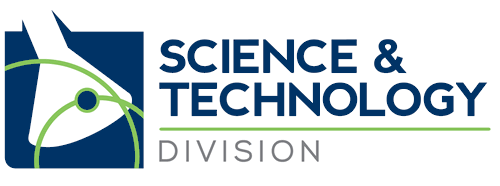Débora C. de D’Eramo, an English>Spanish translator, has provided yet another bunch of links that readers here will find useful. Like her previous posts with glossaries, dictionaries, and references, these resources span a wide range of subject matters and include several languages. Be sure to watch the fun video on how transistors work!
Blog
-
It seems that many scientific and technical translators take a roundabout path in their careers. Is that true for you? Tell us about how you became a translator with your specialization. My path was very roundabout indeed. My academic training was all in the humanities—a BA and MA in Classics and a PhD in Classical Archaeology. In real life, however, I always had a layman’s fascination with science (knowing how the world is) and technology (how people have made use of that knowledge). During my doctoral studies I earned a stipend and tuition benefit first as a lab technician in …
-
Today I’d like to share two little tricks that I use in Microsoft Word. The first is a great shortcut: Shift+F3. If you would like the change the case (upper case or lower case) of a single letter, word, or group of words, you can use Shift+F3. If you place your cursor anywhere within a word and simultaneously press the Shift key and the F3 key, it will change between lower case, upper case for the first letter, and all caps. If you press Shift+F3 several times, it will toggle between these cases. If you highlight a single letter and …
-
The ATA has just made a call for nominations for the S. Edmund Berger Prize, which is awarded annually in recognition of excellence in scientific and technical translation. The interview below, on last year’s Berger Honoree, was published in the 2013 Winter issue of the SlavFile, newsletter of the Slavic Languages Division, and is reprinted here with their kind permission and our gratitude. At the 2012 ATA Annual Conference in San Diego, Amy Lesiewicz, an SLD member, was awarded the S. Edmund Berger Prize for Excellence in Scientific and Technical Translation. The Berger prize is one of several prizes awarded annually …
-
It seems that many scientific and technical translators take a roundabout path in their careers. Is that true for you? Tell us about how you became a translator with your specialization. Being a translator is my second career so taking a roundabout way is very true for me. During my studies I was very interested in languages and cultures, but becoming a translator was not on my radar then. I graduated with an M.Sc. in Economics and went on to study for an M.A. in Business Communications in France and Belgium. After this I got a job as a marketing …
-
Débora C. de D’Eramo, an English>Spanish translator, has a whole treasure chest of great resources for technical and scientific translators. Our first post with links to online terminology databases, glossaries, dictionaries was posted a few weeks ago, and here is a second batch of resources. Terminology databases METEOTERM, multilingual (EN, AR, CH, FR, RU, ES) database of weather and climate specialized terminology – WMO (World Meteorological Organization) https://www.wmo.int/pages/prog/lsp/meteoterm_wmo_en.html ML Lexicon, multilingual database of forensic science terms – European Network of Forensic Science Institutes (ENFSI) https://www.ies.krakow.pl/multilingua/welcome/index.php?item=searchengine TEPA, The Finnish Terminology Centre TSK’s term bank (FI, SV, EN) https://www.tsk.fi/tepa/netmot.exe?UI=engr&height=155 Glossaries Glossary of …
-
How did you become Division Administrator? What do you do? I’m one of the three division members who worked to re-establish the Science and Technology Division in 2010. In the combination of my pair and field there was not enough support in my language division. I felt something was missing. I was not alone. We are a happy, like-minded group in S&TD. At that time, I was appointed as acting administrator. I ran for a term for 2011-2013. My role includes appointing the Leadership Council and working with them to help provide all the services and activities that the division …
-
It seems that many scientific and technical translators take a roundabout path in their careers. Is that true for you? Tell us about how you became a translator with your specialization. After graduating from college in 2000, I started teaching English as a foreign language. For personal reasons, in 2004 I decided to shift my career and I enrolled in a 3-year course in translation and interpretation through a college in my home town, Rosario. I enjoyed it very much and did really well in all subjects, particularly technical and scientific translations involving very specific texts. I developed my main …
-
Débora C. de D’Eramo, an English>Spanish translator, has kindly agreed to share her excellent resources for technical and scientific translations. These contain links to online terminology databases, glossaries, dictionaries and more and are listed below. Terminology databases AGROVOC – FAO multilingual terminology database (+30,000 terms in 22 languages) https://aims.fao.org/website/AGROVOC-Thesaurus/sub The CIMAC Lexicon – Multilingual lexicon of technical terms used in the internal combustion engine and gas turbine industries https://tinyurl.com/mjl6dpm Electropedia – Multilingual electrical and electronical terminology database (+20,000 terms) https://www.electropedia.org/ Glossaries Glosario de términos estadísticos en inglés y español https://www.tribunamedica.com/glosario.htm Multilingual glossary on nanotechnologies – EU https://ec.europa.eu/health/opinions2/en/nanotechnologies/glossary.htm ATSDR (bilingual EN-ES …
-
It seems that many scientific and technical translators take a roundabout path in their careers. Is that true for you? Tell us about how you became a translator with your specialization. There was no defining moment. While studying chemistry in Poland, translating scientific articles from English to Polish was part of what I needed to do to complete my classwork. Due to this early exposure I became a scientific and technical translator without really realizing it. I learned to translate technical writing gradually, while working on research of scientific publications in both English and Polish. While living in Princeton, NJ, …

